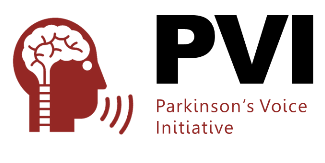A British mathematician has developed an algorithm that he believes can diagnose Parkinson’s Disease from a recording of a patient’s voice. Now he wants the public to make a phone call to help refine the technique.
Max Little, who will talk about his work at the TEDGlobal event in Edinburgh today, came to the research almost by accident. He originally gained an interest in the mathematics of the voice as part of his postgraduate study at Oxford University and was seeking a practical application for the calculations.
At first he investigated the effects of surgery or overuse on vocal cords. However, he later met Andy Grove, one of the founders of Intel. Grove has suffered from Parkinson’s, and the conversation inspired Little to change his focus.
Previous research funded by Intel into Parkinson’s had previously concentrated on using accelerometers to measure the effects of the disease. Such research is vital as the disease can’t be diagnosed through blood tests.
However, by chance Intel had recorded the voices of 50 Parkinson’s sufferers each speaking once a week over the course of six months. The company used this archive to put together a blind test of Little’s technique. He found his algorithm correctly identified whether or not a person had Parkinson’s in 86 percent of cases.
The obvious limitation here is that the changes to the voice may only be detectable once a person has developed the disease to the extent that it has already been diagnosed.
Little says his aim isn’t to replace professional diagnosis, but more to provide an economically viable way to screen people who may be at risk for the disease, before they become aware of potential symptoms. He also suggests it could be used as another way to monitor the effects of experimental drugs for the disease.
To further refine the algorithm, Little is now appealing for the public to call one of 10 cheap or free telephone numbers around the world to take part in a conversation averaging three minutes, thus providing a voice recording. Little hopes to gather 10,000 recordings this way.
Callers don’t have to give their names or addresses, though they will be asked if they have been diagnosed with Parkinson’s disease. (Both those with and without the disease are needed for the study.) Little’s team will provide data from the analysis of the recording to those who provide an e-mail address, but won’t offer any medical diagnosis.

